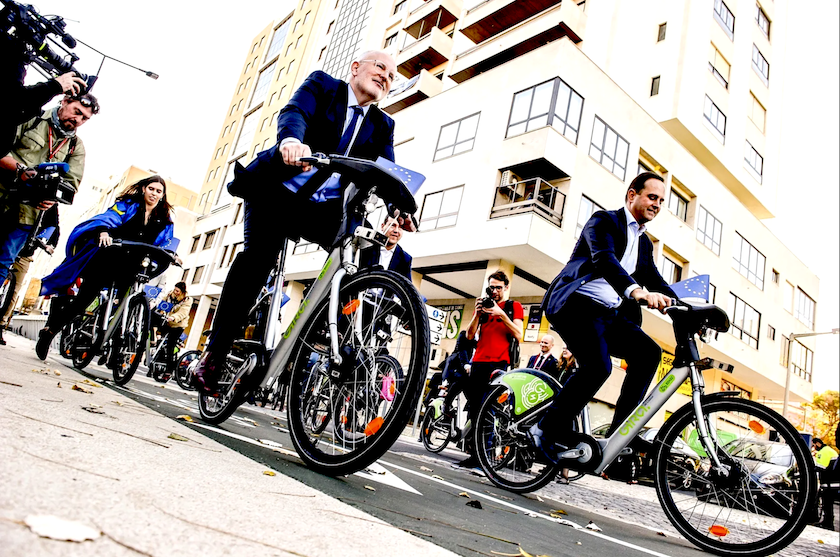
• Flip Book • eNews • eAdventures • eCities • eCargoIntl • eBikeTypes • eRoad • eMTB • eUrban • eCargo • eBikeTests • eAccessories •

• Flip Book • eNews • eAdventures • eCities • eCargoIntl • eBikeTypes • eRoad • eMTB • eUrban • eCargo • eBikeTests • eAccessories •
April 16, 2023 - As cycling boomed during COVID, the need for safe and sensible mobility options took hold in cities around the world. Safety for cyclists became paramount as vehicular collisions and accidents grew in tandem. David Shellnutt, a Toronto personal injury lawyer and avid cyclist, formed The Biking Lawyer back in 2018, which quickly grew a strong online presence as riders were eager for information and a better understanding of the legal issues in a rapidly changing environment. Shellnutt’s firm specializes in matters that affect cyclists, but also supports many vulnerable groups in society from the homeless to BIPOC and LGBTQ+ residents, and others. A strong advocate for safer roads and fairer laws, his firm has become a rallying cry to protect the rights of vulnerable users by lobbying government officials, the police and the mayor’s office. We caught up with Shellnutt for an inside look at the Biking Lawyer’s past, present and future.
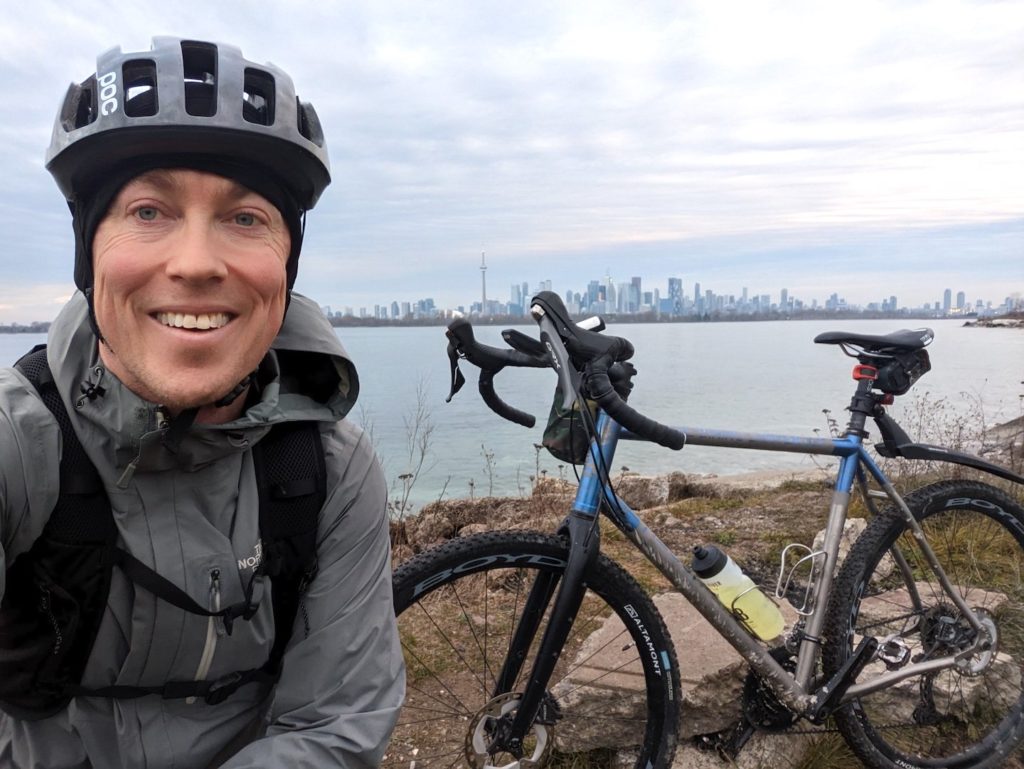
Please tell us about your cycling background and your specialized field of law.
The Biking Lawyer: Like most folks, I grew up cycling as a kid. And in my teenage years, I lived up in Collingwood, ON area where there are lots of hills, so I learned how to mountain bike and road bike there. While at school in the city, the bike got put away. When I got into law in downtown Toronto, I decided to start cycling again instead of sitting on streetcars with a hundred other people. I picked up an old 1970s Raleigh to commute to work and fell back in love with cycling. But riders were up against huge failings in road safety and infrastructure. Being a lawyer that helped injured people, I started to see more and more cyclists and it went from there to combining my work with something that I love.
How long have you been in the cycling law field and when did you set up www.bikinglawyer.ca?
TBL: I’ve been a lawyer for 10 years and have been handling cycling cases for at least eight. During 2018, I started going by The Biking Lawyer. In 2019, I started to realize that I could help more people on my own and I really started to lean into bicycle law and started my own firm. Then part way through 2020, a more senior lawyer from British Columbia (Joel Zanatta) liked what I was doing, and we ended up becoming partners and forming The Biking Lawyer LLP, which is a law firm of multiple lawyers. It all started during COVID when everyone was working remotely. It was natural to extend it into work life, and there was already a great on-line cycling community with people sharing ideas and experiences. It was all just shared organically online because people are looking for information.
Are you seeing an increase in cycling accidents and injuries since the pandemic, especially given the bike boom?
TBL: That’s an interesting question, as all of the data shows that things were pretty bad before with lots of collisions, etc. The data we have now is only for 2020, and some from 2021, and there are dips in the number of crashes during those years. The Toronto Star did an investigation on emergency room visits which were way up for cyclists in 2020-21, whereas collisions from motor vehicles were down because there were fewer people on the streets during the lockdowns. We don’t have the 2022 data yet, but Toronto Police recently noted that 197 pedestrians had been hit by motorists over the last 45 days. I followed up and they confirmed an additional 32 cyclists were hit within the 45-day period — so that’s 200+ vulnerable road users hit by motorists, which is shocking. Since the pandemic society is really stressed, that plays out everywhere from the grocery store line to the roads, and I think we’re going to continue to see some gnarly effects in the years to come.
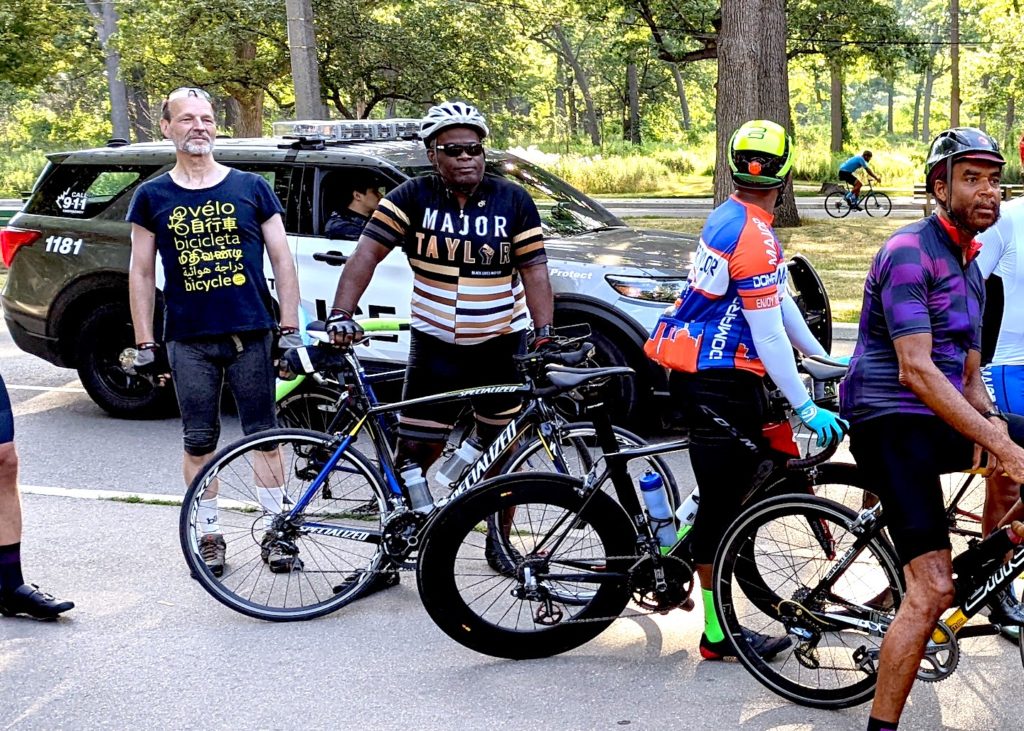
Last summer there were controversial issues at High Park in Toronto between cyclists and police, along with cycling rallies, etc. — was anything resolved?
TBL: There are certain groups that seemingly can’t be reached. Some members of the community took the opportunity to assault cyclists with vehicles. A client of ours, who was riding around High Park at the height of the controversy, was confronted by a driver who screamed expletives at him about not stopping at stop signs and literally ran him off the road. The police also seem pretty close-minded. I’m currently fighting about three pro bono cases on behalf of cyclists who were wronged by police at High Park. I wrote a letter to Police Chief and the Mayor asking for some dialogue without success. We’re advancing the claims, which is costing me, and the City, a ton of time and money. That said, it created the impetus for a movement strategy and dialogue as to how High Park should be used. There’s been huge engagement from people of all stripes and, hopefully, we’ll see a park in our city that’s beautiful and wonderfully changed in a really usable and transformative way for people. Although there were some real downsides with some groups, I think we are making some headway on park usage. And seeing hundreds of cyclists on the streets rallying for a good cause really solidified our community.
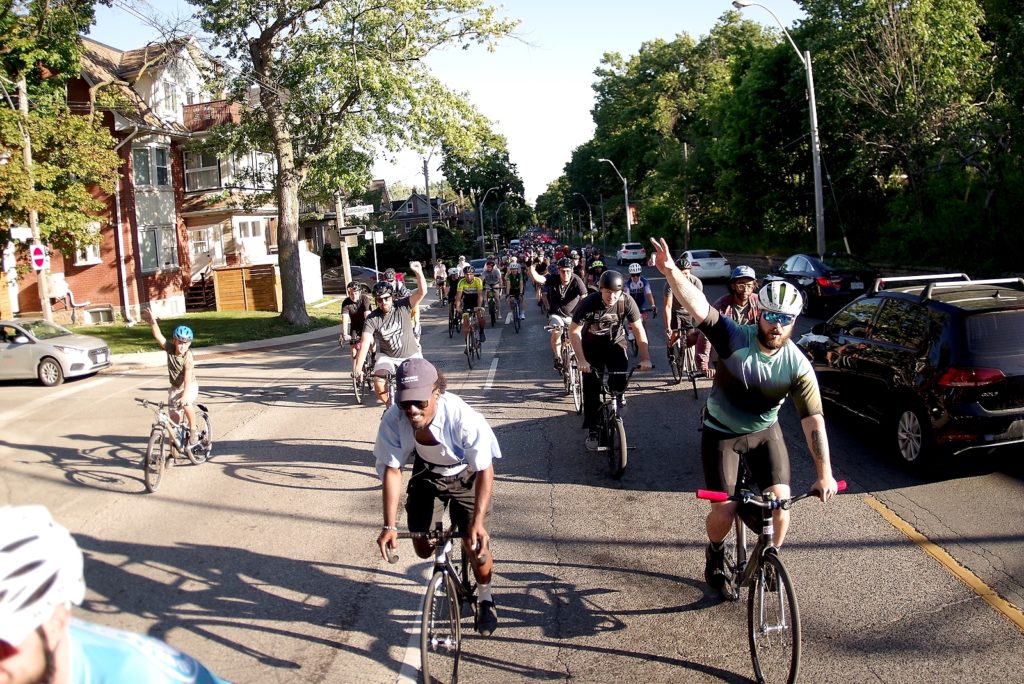
Do you think the politicians are ready to embrace safe cycling as a mobility solution that also helps fight climate change?
TBL: Yes and no. Some will, but some won’t, and others will tell the public one thing, but their actions won’t support it. It’s going to take a lot of work from community and safety organizations to hold people accountable to fight climate change, reduce the amount of people driving for short trips, while making it safe for cyclists and other modes of transportation. Some will need to be dragged forward, but the winds of change are here, and even if it takes a long time, they’re going in our direction.
You started a law section for e-bikes on your website recently, how is that going?
TBL: It’s an area that we’re super keen on. You can’t be in a major urban centre in Ontario and not see e-bikes everywhere. We had a cycling revolution with COVID and an e-bike revolution that followed quickly on its heels. They’ve opened up opportunities for people with mobility issues and others who are eager to get outside and on to bikes — this is fantastic and we’re really stoked about this. There are a lot of hard-working young men and women out there delivering food and being couriers on e-bikes and we love this as well. To positively support this new emerging segment, and provide rights information for people, we added the new e-bike section. Following the rules of the road is crucial, and there are tons of conversations about e-bikers in this regard. Our main focus is always for people to be safe and know their rights. We want to encourage e-bike use and for people to feel safe on them. My dad taught me cycling and we gravel bike together, but he’s in his 70s. There’s going to come a time when he’s going to hop on an e-bike so we can keep cycling together, and I’m really grateful for that.
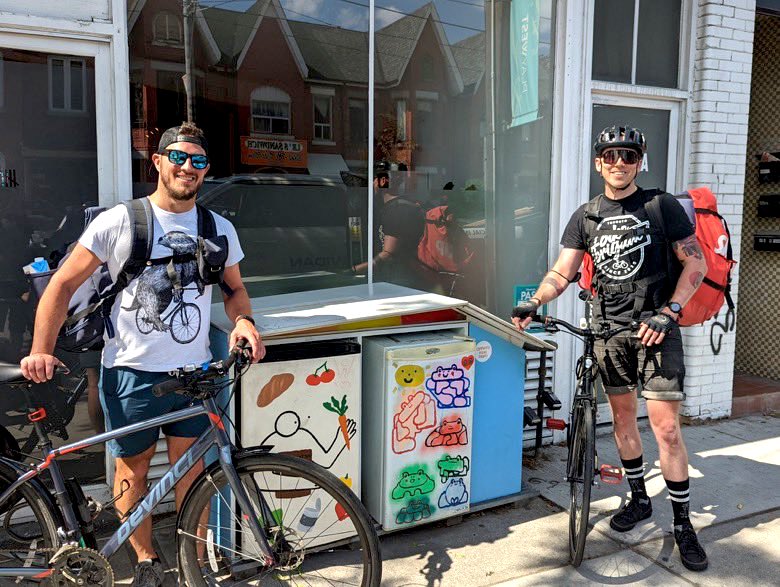
Your website also talks about the Bike Brigade… can you please give us more info on that?
TBL: The Bike Brigade is one of the most beautiful things that I have had the pleasure to be part of. When the pandemic broke out in a big way and the border was shut and everybody was in lockdown, a small group of cyclists and I in Toronto grouped together to help seniors and vulnerable people who couldn’t go out to the grocery store, or pick up medications, etc. We were determined to make sure we’d deliver food supplies, prescriptions, you name it to people in need. We did that through the first lockdown in 2020, the second one in 2021, and we still do it to this day. COVID accentuated the food insecurity issues and other equity issues that plague Toronto, so we have remained dedicated to those communities and we’re grateful to the countless volunteers who have helped along the way. We now have a tech team that created an app to digitize everything and direct riders to their deliveries. Every single day of the week, for multiple community organizations, we deliver food and supplies — it’s wonderful. People can sign up via our website, and then they’ll receive an intro e-mail, followed by a crash course in delivering to people in need.
How would you rate Toronto as a cycling city?
TBL: I’ve been cycling in Toronto for 10 years now, maybe more, and we’ve come a long way, but we still have a long way to go. COVID sparked a cycling revolution and there are more bike lanes, but as the pandemic has subsided things have slowed down. We have to continue to battle here for safe streets, and there’s a lot of work still to do. While I haven’t cycled around in too many other Canadian cities, I would say that Vancouver looks really appetizing for cyclists. I was in Calgary years ago and couldn’t believe that the bike lanes were pristine after a big snowstorm, and Hamilton installed a bidirectional bike lane on Cannon Street, one of its longest streets. Many other cities have done things that we admire which can inspire us to achieve more in Toronto. There’s still a long way to go, but some good progress has been made.
Do you have any cycling goals yourself?
TBL: I ride for errands. I ride to deliver for the Bike Brigade, and I was out delivering hot meals today. I have a nice road bike and a gravel bike, and I like to hop on them for exercise. I like to take my kids to school as well, so I’m cycling all the time. My goals are to do all the bike races I did last year, all the gavel races, and finish them all and try to beat myself. That’s what I’m looking forward to trying to do.
Thank you for your time and all the best.
TBL: Thank you as well.
Read more about The Biking Lawyer here.
Read more about the TBL E-bikes page here